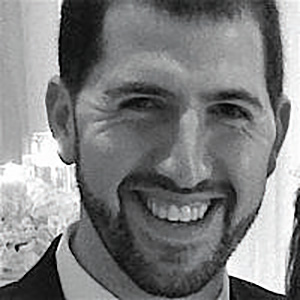
Editor’s note: This article first appeared on TOI.
I, along with millions of others, was glued to my screen watching Judge Kavanaugh’s confirmation hearing. Beyond the general fascination and intrigue, I believe there are three meaningful Jewish lessons to be learned from this painful episode.
The first lesson hit me like a ton of bricks while watching the harsh interrogation. Brett Kavanaugh was forced to reckon with behavior alleged to have taken place some 35 years ago. I suddenly realized that Judge Kavanaugh is not unique. After 120 years, each one of us will stand before the heavenly judiciary and be called to task for our deeds; from our youthful follies to our adult wrongdoings.
As Rabbi Yehudah HaNasi teaches us in Ethics of Our Fathers (2:1):
Contemplate three things, and you will not come to the hands of transgression: Know what is above from you: a seeing eye, a listening ear, and all your deeds being inscribed in a book.
The proceedings brought the last line of this teaching into laser-focus.
All of our deeds are inscribed in a book!
No action, no matter how benign, no matter how well-intentioned, is forgotten.
If Judge Kavanaugh had to account for his possible deplorable behavior as a teenager, what will our experience be like when we stand before G-d and are called to task for all of our reckless, small-minded and selfish behaviors?
The second lesson relates to the power of our reputations. So much of the “he said” “she said” boiled down to accountability. Who can be trusted? Whose word is more reliable?
Over the holiday of Sukkot, we read from the book of Ecclesiastes authored by King Solomon. In this work, Solomon underscores the importance of a good reputation.
A good name is better than good oil (7:1).
As the Rabbis in the Midrash further elaborate: Good oil lasts for just a short time. A good name lasts forever.
We have very little time on this earth. So much of life is fleeting and temporal. If we are going to invest our greatest asset, time, it should be spent involved with meaningful activities that bring joy to our Creator, and bring us honor and dignity. After all, it is ultimately our reputation that will linger on long after our bodies expire.
The third lesson relates to our human limitations when searching for the truth.
Why did all Democratic senators on the Judiciary Committee side with Dr. Ford? Why did all Republican senators on the Judiciary Committee side with Judge Kavanaugh?
Nobody can doubt this case is ambiguous at best. Yet all Democrats reached the exact same conclusions, as did the Republicans. Liberals heard the voice of a brave and broken woman. Conservatives heard the sounds of a forgery, sham and a disgrace.
Of course, these fissures cut more deeply than our elected officials.
The day after Kavanaugh and Ford gave their grueling testimony, The New York Times editorial board published a piece entitled, “Why Brett Kavanaugh Wasn’t Believable.”
And the very same day, the Wall Street Journal’s editorial board published a piece entitled, “Confirm Brett Kavanaugh.”
To me, this reflects the great difficulty that we encounter when searching for the truth. We are all strongly influenced and biased by our surroundings.
Social scientists know this too. Fascinating research was reported in the journal Science in October 2008. The study involved hot and cold cups of coffee. Students were asked to hold a cup of coffee in their hands for a few seconds before reading a biography about an imaginary person. The students were then asked to evaluate the person’s traits. The students who had held a hot cup of coffee were significantly more likely to describe the imaginary person as “warm and friendly” than the students who had held a cold coffee.
The researchers concluded that a person’s environment deeply effects their thoughts and deeds. At times we are conscious of this influence, oftentimes we are not.
Perhaps this entire episode with Judge Kavanaugh and Dr. Ford is a good reminder to each one of us how difficult it is to accurately assess the facts of any situation. As firmly entrenched as we may be on any given issue, there is always another perspective to consider.
King Solomon warns us about this too.
Be not overly righteous, and be not overly wise; why should you bring desolation upon yourself (7:16)?
Let this week’s judicial hearing be a reminder to us all — to take our actions seriously, for G-d is recording each and every one of them; how we must invest our time wisely to build our most important asset, our reputations; and how open we ought to be to hear other people’s opinions and perspectives. Who knows? It might just be the truth.
By Rabbi Zev Goldberg
Rabbi Zev Goldberg is the rabbi at Young Israel of Fort Lee.










